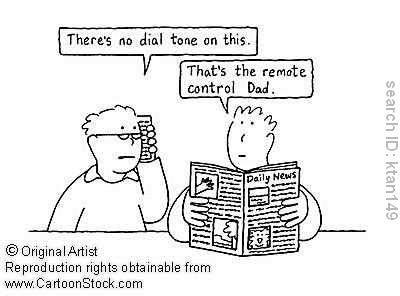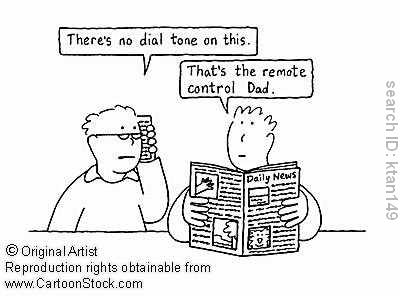
I was standing in line the other day with a friend waiting to get into a concert. In front of us was a family with two kids, a boy around 7 years old and a girl about 12. Next to them on the sidewalk was a public pay telephone (yes, they still exist). The boy went over to the phone and picked up the receiver and put it to his ear. “What are you doing?” the father asked. “I wanted to hear what it sounded like,” the son replied. The girl went over and had a listen for herself.
I realised that these kids may have never heard a dial tone before.
It wouldn’t be odd if the parents didn’t have a landline at home. Most people I know these days, along with me, don’t have a landline; they use their mobiles. In fact, 29% of children live in homes without landlines. So kids may grow up possibly never hearing a dial tone until they encounter one at their first job. It goes to show the progression of technology and the change in the way we communicate.
For me the dial tone brings some comfort. When I pick up a landline phone and hear no dial tone I know something’s awry. It’s not normal. I get a kind of empty feeling because I know I can’t call out. Is the power out? The telephone line? With mobile phones there’s no immediate indicator until after I place the call – then I may get a tone of some sort if the call failed.
Yes, I’m bringing prayer into it
Paradoxically, God operates without a dial tone. There is no audible indicator letting you know that God is listening to you. And that can be disconcerting to some. The best part is, God never steps away from the switchboard or takes off his headset. So while human communication standards change and we lose that safe constancy of the dial tone, God’s communication standards do not change. It may seem a bit cliché to talk about prayer as a “direct line” to God, but my point here is that with God there is constancy. No dial tone required. Silence is something constant and dependable. Even between the waves of sound or music lie tiny moments of silence. Silence even makes up sound.
This is not to say we can’t pray with music or sound, but there’s a reason liturgical services call for silence in certain parts. Silence is space where there is nothing else but God. Think of the vacuum of space: there is absolutely nothing there, no matter, no gas for sound to travel through. But as people of faith we can trust that the constancy and presence and mystery of God is there.
So the dial tone is kind of a “waiting silence” for landline phones: It tells you that the telephone system is functioning and ready to receive your input. As for prayer, the waiting silence is, well, the silence of God’s waiting for your input. And it’s never out of service. We can be uncomfortable with silence which is why it feels awkward to hear no dial tone on a landline. Perhaps we can accept silence as not something uncomfortable but space we leave for God’s constant, dependable, and patient waiting for us.
Listen to an audio version of this post…
Forgot what a dial tone sounds like? Here:
A dial tone? What's that?









🙂 Love the column — I heard a busy signal for the first time in ages recently — fortunately for me, God never gives me the busy signal!
I live in a world of information / data “noise” and when I pray or meditate, I am very uncomfortable with the “silence.” I am hoping to hear that inner voice of God, offering guidance and reassurance, but nothing happens. Others have shared how God has guided them in prayer / meditation, but for me, the silence does little, and I have fallen asleep, or just gave up after a few minutes of uneasiness and fear.
Reblogged this on Visionyouthmag.